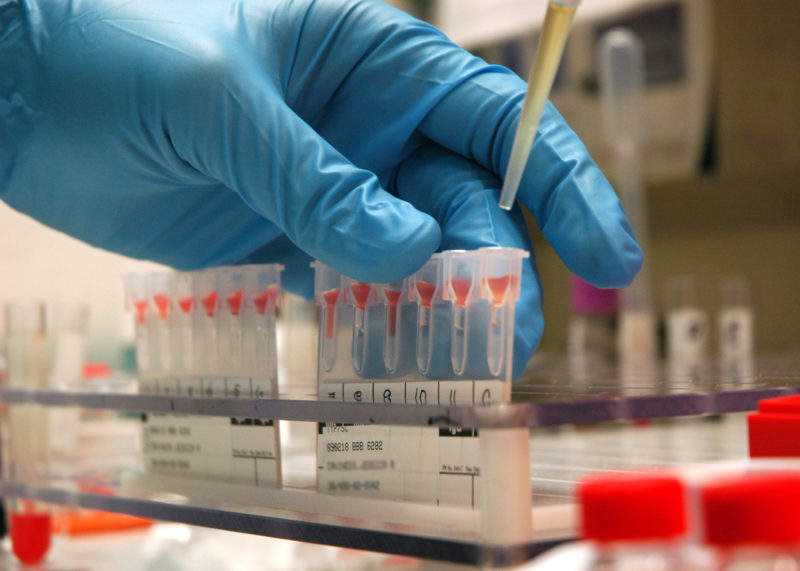In 2006, Swedish Orphan Biovitrum (SOBI) partnered with Bioverativ to develop a new generation of haemophilia treatments. Their leading treatments, Elocta/Eloctate (efmoroctocog alfa; antihemophilic factor [recombinant], Fc Fusion Protein) for haemophilia A and Alprolix (coagulation factor IX [recombinant], Fc Fusion Protein) for haemophilia B have since launched following approvals in the US in 2014 and in the EU in 2015 and 2016, respectively.
GlobalData estimates sales of $874m for Elocta/Eloctate and $527m for Alprolix by 2026 in the seven major markets (7MM; US, France, Germany, Italy, Spain, UK, and Japan). SOBI recently reported revenues of SEK 873m ($96m) and SEK 255m ($28m) for Elocta and Alprolix, respectively, in Q3 2018. SOBI reported that France, Germany and Italy were largely responsible for this growth. In addition, the royalties and manufacturing revenues for the haemophilia A treatment ReFacto (moroctocog alfa) contributed to SOBI’s total haemophilia revenue of SEK 1.5bn ($170m), a 63% rise from SEK 948m ($105m) this time last year.
The shift in the treatment paradigm for haemophilia A and B from short-acting to long-acting recombinant factors is one of the key elements for the successes of Elocta/Eloctate and Alprolix, both of which were the first-to-market long-acting recombinant factor VIII (rFVIII) and IX (rFIX) therapies, respectively. Elocta/Eloctate has a half-life extension 1.5-fold longer than standard rFVIII, requiring infusions every three to five days as a prophylactic regimen and reducing the number of infusions per year by 30% per patient. The extended half-life for Alprolix brings down the dosing frequency of prophylactic rFIX infusion to once weekly or once every ten days. This reduction of dosing positions both products as more convenient options for prophylactic use and reduces the chances of infusion-related complications.
SOBI’s vision in the haemophilia market
On 15 November, SOBI presented at the Jefferies Healthcare Conference 2018 in London. SOBI’s president and chief executive officer, Guido Oelkers, hailed the successful launch of its haemophilia products as one of its main growth drivers. Oelkers also described SOBI’s vision for further growth, penetration, and internationalisation within the haemophilia market, particularly in the US, undeterred by the growing competition of other long-acting recombinant factor treatments and non-factor haemophilia treatments.
Despite SOBI’s successes, GlobalData research found that long-acting rFVIIIs have not lived up to expectations and their uptake has been slower than expected. Oelkers was questioned about whether Sanofi’s BIVV001 (rFVIIIFc-VWF-XTEN), a joint venture between Bioverativ and Amunix, has the potential to either gradually replace or expand market opportunities for Elocta/Eloctate.
BIVV001 is a haemophilia A FVIII therapy which appears to overcome the von Willebrand factor (vWF) ceiling, whereby the half-life of intravenously administered rFVIII is limited by the availability or carrier status of endogenous vWF. Preliminary data from the ongoing EXTEN-A Phase 1/2a trial suggested that a single low dose of BIVV001 quadrupled the half-life of FVIII to 37 hours while achieving high factor activity levels. Furthermore, a twice-monthly dosing regimen of BIVV001 is now being evaluated.

US Tariffs are shifting - will you react or anticipate?
Don’t let policy changes catch you off guard. Stay proactive with real-time data and expert analysis.
By GlobalDataOelkers confidently supported the efficacy and the safety profile of Elocta/Eloctate and reiterated that there is an underestimation of patient and physician demands for safety, particularly that patients who perform well on the product would be reluctant to switch, therefore, Elocta/Eloctate will retain its space in the market and have a significant market share.
Despite this air of confidence, SOBI announced a strategy to broaden its specialty care portfolio, moving towards proprietary drugs and drug candidates and undertaking acquisitions to leverage the European platform and extend the North American platform while creating synergies with the existing portfolio.
Last week, SOBI announced agreements with AstraZeneca over respiratory syncytial virus (RSV) treatments Synagis (palivizumab) and MEDI8897 in the US market, already putting this expansion into action. This is a wise strategy for SOBI as the development of potentially revolutionary treatments, such as tissue factor pathway inhibitors (TFPIs), gene therapies, and RNAi therapies is predicted not only to increase competition against its haemophilia franchise, but also revolutionise the haemophilia market.




